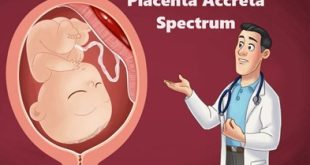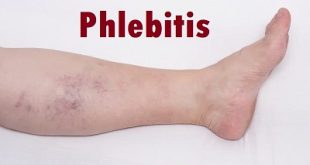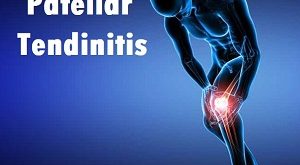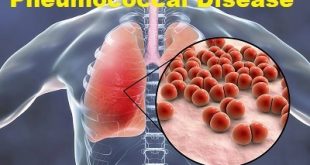Definition
Pancreatitis is an inflammatory condition of the pancreas that is painful and at times deadly. Despite the great advances in critical care medicine over the past 20 years, the mortality rate of acute pancreatitis has remained at about 10%. Diagnosis of pancreatic problems is often difficult and treatments are therefore delayed because the organ is relatively inaccessible. There are no easy ways to see the pancreas directly without surgery and available imaging studies are often inadequate. In addition to the acute form, there are hereditary and chronic forms of pancreatitis which can devastate a person over many years. Sufferers often endure pain and malnutrition and are most likely left with a higher risk of pancreatic cancer.
Pancreatitis
Types of Pancreatitis
Acute pancreatitis
It is a painful and deadly condition. It can be caused by gallstones and alcohol abuse as well as other less likely conditions such as elevated triglycerides, high calcium blood levels, problems with the thyroid and even as a result of taking certain medications. Ninety percent of patients with acute pancreatitis will have a full recovery in three to four days; but, ten percent of patients may develop severe disease which can result in respiratory, renal, or cardiac complications, some of which can result in a high mortality rate if not addressed immediately.
Chronic pancreatitis
When a patient has a significant pancreatic disease due to persistent exposure to an underlying trigger such as smoking, alcohol, some metabolic disorders, and genetic mutations. These patients frequently seek medical help with the main complaint of pain that can be very severe, difficult to treat and debilitating. Diabetes and exocrine pancreatic insufficiency may also be present in chronic pancreatitis. Cessation of the exposure or trigger is extremely important to prevent more episodes from happening.
Risk factors
The major risk factors for pancreatitis are excessive alcohol intake and gallstones. Although the definition for excessive alcohol intake can vary from person-to-person, most health-care professionals suggest that moderate consumption is no more than two alcoholic beverages a day for men and one a day for women and the elderly. However, people with pancreatitis secondary to alcohol intake are usually advised to avoid all alcohol intakes.
Other risk factors include
- A family history of pancreatitis
- High levels of fat (triglycerides) in the blood
- Cigarette smoking
- Certain inherited disorders such as cystic fibrosis and
- Taking certain medicines (for example estrogen therapy, diuretics and tetracycline)
Causes
Gallstones and long-term alcohol abuse are the main causes of pancreatitis. Other causes include:
- Use of medications such as valproic acid and estrogen
- Viral infections such as mumps and Epstein-Barr virus
- A very high blood triglyceride level or a high blood calcium level
- Cystic fibrosis (or being a carrier of a gene that causes cystic fibrosis
- Inherited defects that result in early activation of digestive enzymes
- Pancreatic cancer
- Certain autoimmune conditions
- Injury (trauma) to the pancreas
Some cases of acute and chronic pancreatitis have no clear cause. Pancreatitis can cluster in some families and there are several known genes that contribute to increased risk for pancreatitis.
Symptoms
Acute pancreatitis
Common signs and symptoms of acute pancreatitis include:
- Severe upper abdominal pain that may radiate to the back and often increases after eating or lying flat. (The pain is sometimes referred to as epigastric because it occurs in the upper middle part of the abdomen)
- Nausea, vomiting
- Fever
- Rapid pulse
- Abdominal swelling and tenderness
These attacks cause local inflammation, swelling, and hemorrhage in the pancreas that usually go away with appropriate treatment and do little or no permanent damage.
Sometimes, however, acute pancreatitis attacks are severe and complications can develop, such as:
- Tissue death (necrosis)
- Pancreatic pseudocysts (sacs filled with fluid and dead tissue that can become infected)
- Infection
- Low blood pressure, which can lead to shock
- Difficulty breathing
- Kidney failure
It is important that you see a healthcare practitioner because symptom severity does not necessarily reflect the amount of damage that may be occurring and because other conditions that require different treatments may cause similar symptoms.
Diagnosing and treating severe attacks as soon as possible is critical to prevent complications and to reduce inflammation and limit infection. Repeated bouts of acute pancreatitis can lead to chronic pancreatitis.
Chronic pancreatitis
People with chronic pancreatitis may have recurring attacks with symptoms similar to those of acute pancreatitis. These attacks often increase in frequency as the condition progresses. Pain with chronic pancreatitis may be severe and continuous or intermittent. It may be made worse with eating or drinking, especially drinking alcohol.
Over time, as more of the pancreas becomes scarred, the cells that produce digestive enzymes are destroyed. This can cause:
- Pancreatic insufficiency
- Unintended weight loss
- Malnutrition
- The buildup of fluid in the abdomen (ascites)
- Pancreatic pseudocysts sacs of fluid and destroyed tissue that can become infected
- Greasy, foul-smelling, fatty stools
As the cells that produce insulin are destroyed, you may develop diabetes.
Pancreatitis complications
Pancreatitis can cause serious complications, including:
Pseudocyst: Acute pancreatitis can cause fluid and debris to collect in cyst like pockets in your pancreas. A large pseudocyst that ruptures can cause complications such as internal bleeding and infection.
Infection: Acute pancreatitis can make your pancreas vulnerable to bacteria and infection. Pancreatic infections are serious and require intensive treatment, such as surgery to remove the infected tissue.
Kidney failure: Acute pancreatitis may cause kidney failure, which can be treated with dialysis if the kidney failure is severe and persistent.
Breathing problems: Acute pancreatitis can cause chemical changes in your body that affect your lung function, causing the level of oxygen in your blood to fall to dangerously low levels.
Diabetes: Damage to insulin-producing cells in your pancreas from chronic pancreatitis can lead to diabetes, a disease that affects the way your body uses blood sugar.
Malnutrition: Both acute and chronic pancreatitis can cause your pancreas to produce fewer of the enzymes that are needed to break down and process nutrients from the food you eat. This can lead to malnutrition, diarrhea and weight loss, even though you may be eating the same foods or the same amount of food.
Pancreatic cancer: Long-standing inflammation in your pancreas caused by chronic pancreatitis is a risk factor for developing pancreatic cancer.
Diagnosis and test
Health care professionals may use lab or imaging tests to diagnose pancreatitis and find its causes. Diagnosing chronic pancreatitis can be hard in the early stages. Your doctor will also test for other conditions that have similar symptoms, such as peptic ulcers or pancreatic cancer.
Lab tests
Lab tests to help diagnose pancreatitis include the following:
Blood tests: A health care professional may take a blood sample from you and send the sample to a lab to test for
- High amylase and lipase levels digestive enzymes made in your pancreas
- High levels of blood fats, called lipids
- Signs of infection or inflammation of the bile ducts, pancreas, gallbladder, or liver
- High blood glucose, also called blood sugar
- Pancreatic cancer
Stool tests: Your doctor may test a stool sample to find out if a person has fat malabsorption.
Imaging tests
Health care professionals also use imaging tests to diagnose pancreatitis. A technician performs most tests in an outpatient center, a hospital, or a doctor’s office. You don’t need anesthesia, a medicine to keep you calm, for most of these tests.
Ultrasound: Ultrasound uses a device called a transducer, which bounces safe, painless sound waves off your organs to create a picture of their structure. Ultrasound can find gallstones.
Computed tomography (CT) scan: CT scan creates pictures of your pancreas, gallbladder and bile ducts. CT scans can show pancreatitis or pancreatic cancer.
Magnetic resonance cholangiopancreatography (MRCP): MRCP uses a magnetic resonance imaging (MRI) machine, which creates pictures of your organs and soft tissues without x-rays. Your doctor or a specialist may use MRCP to look at your pancreas, gallbladder, and bile ducts for causes of pancreatitis.
Endoscopic ultrasound (EUS): Your doctor inserts an endoscope a thin, flexible tube down your throat, through your stomach, and into your small intestine. The doctor turns on an ultrasound attachment to create pictures of your pancreas and bile ducts. Your doctor may send you to a gastroenterologist to perform this test.
Pancreatic Function Test (PFT): Your doctor may use this test to measure how your pancreas responds to secretin, a hormone made by the small intestine. This test is done only at some centers in the United States.
Pancreatitis treatment
How do health care professionals treat pancreatitis?
Treatment for acute or chronic pancreatitis may include
- A hospital stay to treat dehydration with intravenous (IV) fluids and if you can swallow them, fluids by mouth
- Pain medicine, and antibiotics by mouth or through an IV if you have an infection in your pancreas
- A low-fat diet, or nutrition by feeding tube or IV if you can’t eat
Your doctor may send you to a gastroenterologist or surgeon for one of the following treatments, depending on the type of pancreatitis that you have.
Acute pancreatitis
Mild acute pancreatitis usually goes away in a few days with rest and treatment. If your pancreatitis is more severe, your treatment may also include:
Surgery: Your doctor may recommend surgery to remove the gallbladder, called cholecystectomy if gallstones cause your pancreatitis. Having surgery within a few days after you are admitted to the hospital lowers the chance of complications. If you have severe pancreatitis, your doctor may advise delaying surgery to first treat complications.
Procedures: Your doctor or specialist will drain fluid in your abdomen if you have an abscess or infected pseudocyst, or a large pseudocyst causing pain or bleeding. Your doctor may remove damaged tissue from your pancreas.
Endoscopic Cholangiopancreatography (ERCP): Doctors use ERCP to treat both acute and chronic pancreatitis. ERCP combines upper gastrointestinal endoscopy and x-rays to treat narrowing or blockage of bile or pancreatic duct. Your gastroenterologist may use ERCP to remove gallstones blocking the bile or pancreatic ducts.
Chronic pancreatitis
Treatment for chronic pancreatitis may help relieve pain, improve how well the pancreas works, and manage complications.
Your doctor may prescribe or provide the following:
Medicines and vitamins: Your doctor may give you enzyme pills to help with digestion, or vitamins A, D, E, and K if you have malabsorption. He or she may also give you vitamin B-12 shots if you need them.
Treatment for diabetes: Chronic pancreatitis may cause diabetes. If you get diabetes, your doctor and health care team will work with you to create an eating plan and a routine of medicine, blood glucose monitoring, and regular check-up’s.
Surgery: Your doctor may recommend surgery to relieve pressure or blockage in your pancreatic duct, or to remove a damaged or infected part of your pancreas. Surgery is done in a hospital, where you may have to stay a few days.
In patients who do not get better with other treatments, surgeons may perform surgery to remove your whole pancreas, followed by islet auto-transplantation. Islets are groups of cells in your pancreas that make hormones, including insulin. After removing your pancreas, doctors will take islets from your pancreas and transplant them into your liver. The islets will begin to make hormones and release them into your bloodstream.
Procedures: Your doctor may suggest a nerve block, which is a shot of numbing medicine through your skin and directly into nerves that carry the pain message from your pancreas. If you have stones blocking your pancreatic duct, your doctor may use a procedure to break up and remove the stones.
Prevention of Pancreatitis
The following recommendations may help to prevent further attacks or to keep them mild:
- Completely eliminate alcohol because it is the only way to reduce the chance of further attacks in cases of pancreatitis caused by alcohol use, to prevent pancreatitis from worsening, and to prevent the development of complications that can be very serious or even fatal.
- Eat small frequent meals. If in the process of having an attack, avoid solid foods for several days to give the pancreas a chance to recover.
- Eat a balanced diet high in carbohydrates and low in fats because may help individuals decrease the risk for pancreatitis since it is likely these actions will decrease the risk for gallstones, a major risk factor for pancreatitis.
- If pancreatitis is due to chemical exposure or medications, the source of the exposure will need to be found and stopped, and the medication will need to be discontinued.
- Don’t smoke
- Maintain a healthy weight
- Exercise regularly
 Diseases Treatments Dictionary This is complete solution to read all diseases treatments Which covers Prevention, Causes, Symptoms, Medical Terms, Drugs, Prescription, Natural Remedies with cures and Treatments. Most of the common diseases were listed in names, split with categories.
Diseases Treatments Dictionary This is complete solution to read all diseases treatments Which covers Prevention, Causes, Symptoms, Medical Terms, Drugs, Prescription, Natural Remedies with cures and Treatments. Most of the common diseases were listed in names, split with categories.








I had this pain in the center upper abdomen spreading little to the left and felt full without eating or after consuming little amount of food or water. What is your recommendations?
It may be due to the muscle cramp or due to the peptic ulcer. However, consult a doctor for a better diagnosis of the pain.
how can one use known food to prevent the problem pancreatitis instead of the known treatment plan.
To get your pancreas healthy, focus on foods that are rich in protein, low in animal fats, and contain antioxidants. Try lean meats, beans and lentils, clear soups, and dairy alternatives (such as flax milk and almond milk).
I have a bariatric surgery from indore
Dr Mohit bhandari hospital and he operations me to gastrict by pass surgery my health is good but my stumk pass the gas was very dirty smelling he saggest to tab.creone pancreatin minimicorspheres 10000mg but the tablet are so costly so you give me a right idia and suggested cheep and best medicine
thanks
I have bariatric surgery to gastrict by pass may health is good but my problem are my stumk passed the gas was very dirty smelling suggested to tab.creon 10000mg
but the medicine are so costly please give me a right idia and suggested cheep medicine
thanks
.
Very informative, even as a practicing medical doctor, it’s been very helpful. Also, as a resource for common people who may not be interested in diving deeply into medical topics, the simplicity of the language used is commendable.
sir i m feeling pain now a days
i have a problem of siram amylase over secretion
Now the test result is 673 normal ratio are 90 to 100
sir i am shocked few days was little pain in my upper abdominal at right side sir please give me suggestions
please consult an endocrinologist.
i am regularly taken panzynorm 360mg after meal three times daily. is it safe for use in long durations?
the side effects may include Stomach pain, Bloating, Diarrhea. It is advised to get a doctor’s help for prolonged usage of this drug.